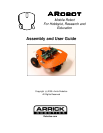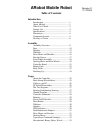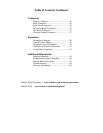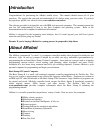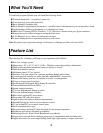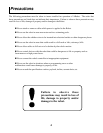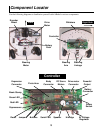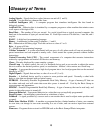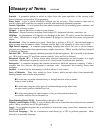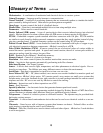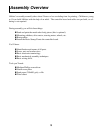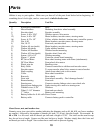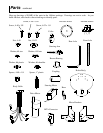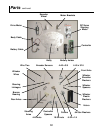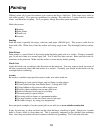
Introduction
Congratulations for purchasing the ARobot mobile robot. This manual should answer all of your
questions. We suggest that you read and understand all of it before using your new robot. If you have
any questions, please view our web site at www.robotics.com/arobot
The software provided is designed for use with IBM-style personal computers. This manual assumes the
user has full understanding of how to use their computer and operating system. Refer to the
documentation for the computer for additional information.
ARobot is designed for the beginning robot hobbyist, but if it looks beyond your skill level, please
return the unit before going any further.
Parents: If you’re buying ARobot for a young person, be prepared to help them.
1
About ARobot
The ARobot (pronounced "A robot") is a computer controlled mobile robot designed for hobbyists and
educators. Ages 16 and up (younger if helped by an adult) can enjoy unlimited experimentation by
programming the on-board Basic Stamp II control computer. Learn and use concepts such as computer
programming, motion control, sensor reading, path planning, object avoidance, and more. Easily
assembled in a few hours using common hand tools (no soldering required). Connect ARobot to your
personal computer for programming and begin your adventure.
Basic Stamp II Control Computer
The Basic Stamp II is a small, self-contained computer controller manufactured by Parallax Inc. This
easy-to-use system is programmed using a Basic-like language called PBasic. Programs are written on
an IBM-style PC then downloaded to the Basic Stamp II for execution. Large libraries of programs can
be created and saved. ARobot's controller board accepts the Basic Stamp II (purchased separately)
which controls motors, LEDs, buzzer, and other devices. The Parallax Web site at
www.parallaxinc.com provides complete information about the Basic Stamp II including the
programming manual.
ARobot is a versatile system that can perform a variety of tasks. Here are just a few examples:
Hobby robotics projects.
Education and training.
Research in artificial intelligence, A-life, etc.
Science projects.
Testing platform for navigation algorithms.
Simulation of planetary exploration.
Maze solving.
Contests.
Publicity.
Fun, Fun, Fun!



